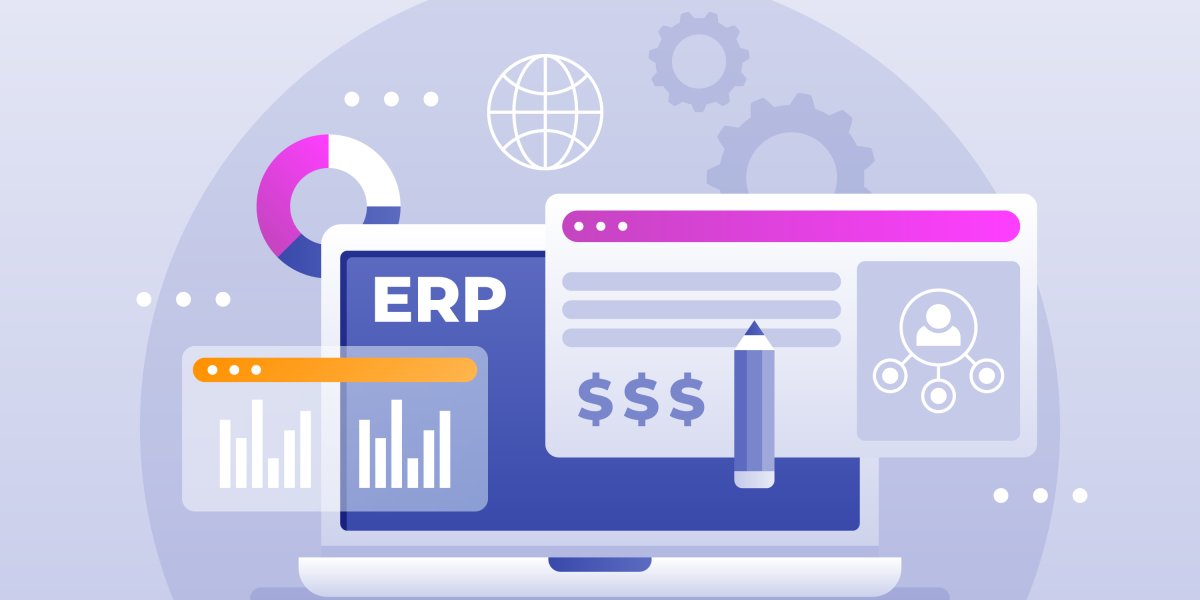
In order to make a company more efficient and increase sales, it is imperative to invest in solutions and processes that allow the most important business data to be organized and managed more effectively, such as an ERP system.
ERP is the acronym for Enterprise Resource Planning. Its main function is to manage different processes and areas of the company. With ERP, the company keeps track of inventory, financial transactions, income and expenses, payroll, as well as all other necessary data and metrics. A good ERP system meets the needs of the company both through various basic and standard modules and through additional extensions. The basic functions of an average ERP system include:
- Issuing electronic invoices for products and services;
- Financial control (accounting);
- Production;
- Inventory management;
- HR;
- CRM;
- Reporting;
- POS management etc.
So, by centralizing all information in one central location, the ERP system contributes to:
- Sales control;
- Shipment tracking;
- Payment management;
- Analysis of goals and company performance;
- Storage of information from different areas of the company;
- Tax obligations;
- Easy data exchange between employees;
- Management agility;
- Productivity increase.
Does the ERP system fit every company?
Surely! ERP can (and should) be used by companies of all sizes and industries, including small and medium-sized companies. Since it aims to automate and organize processes, every company can benefit from it.
What differs from case to case are the needs, requirements and financial possibilities of the company to invest in an ERP system. Currently, it is possible to rent cloud systems where information is provided on online servers. In this case, deployment costs are lower, less physical infrastructure is required from the company, and the system can be accessed from any device.
Another option is on-premise ERP. The software is installed on the company's server. Thus, the functions of the system can be adapted to the needs of the company. However, this requires server maintenance, physical space for these devices, and a team to take care of all infrastructure issues.

What are the advantages for companies investing in an ERP system?
- Firstly, ERP software helps to organize business processes as it reduces the time spent performing manual tasks while employees can focus on more important things. In addition, errors are minimized since automated data is used.
- Using an ERP system centralizes all the necessary data and makes it easier to manage. It also supports the control of internal processes, as all managers and employees work according to uniform rules.
- It ensures easy and quick access to information. Depending on the size of the company, finding the information you need in a spreadsheet or notebook can take up valuable time. With an ERP solution, data access becomes much faster.
- The reduction in management errors combined with better management of company resources translates into cost savings. The use of ERP enables employees who previously worked with countless spreadsheets to devote themselves now to strategic activities and generate added value for the company.
- An ERP system helps with inventory management - controlling the amount of products that are in stock, in turn, makes management easier and hence can also generate savings for the company. In addition, it is also possible to analyze the seasonality of the market, the average purchase and the regions with the best performance. All this contributes to the growth of the company.
- Increase productivity. When employees stop performing repetitive activities and start working on strategic projects and actions, their productivity and performance increases. This contributes to business development, process improvement, focus on innovation and professional development of employees.
- One of the great advantages of an ERP system is the full integration with the online shop, which allows for better and more efficient management. So there is no need to have multiple spreadsheets to control e-commerce sales, for example. It facilitates the strategic planning of the company and the management of the online store.
- As online store sales increase, it takes longer to issue invoices and control sales. The ERP enables quick and easy issuing of invoices, whether physical or electronic. It is easier to control payments of customers, view unpaid invoices and create payment reminders. This process is thus made much easier and automated.
- If the customer receives an incorrect order or the delivery is delayed, they will no longer buy from the company. These mistakes seriously affect customer loyalty. With an ERP system, it is possible to collect various customer data that will affect the company's relationship with them and help to avoid abandoned purchases in the future. It helps to collect accurate information about the best-selling products and consumer behavior and allows us to use this information to develop more effective marketing strategies.
There are several ERP software on the market, e.g. Navision or Weclapp, which we recommend to our e-commerce customers. It is important to choose one according to the needs of your business, which also supports business development. The introduction of such a system brings numerous advantages for the business!
Our agency Kenner Soft Service GmbH offers you services related to the setting and modification of Weclapp, Navision or other ERP systems as well as integration and synchronization with your Shopware, Magento, JTL and xtCommerce online shop. We are happy to support you with the onboarding of the ERP software and help with the data migration. Contact us for detailed information.
Are you interested in a dedicated team?
Please contact our team, we will be glad to help you.








